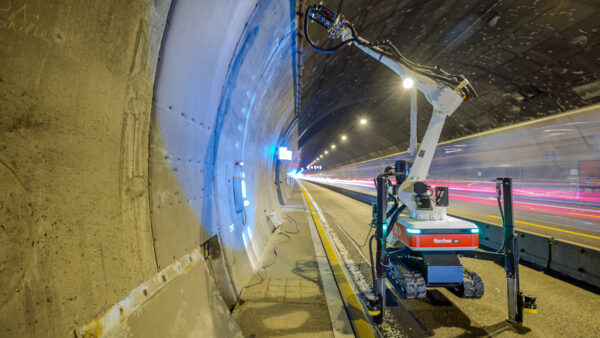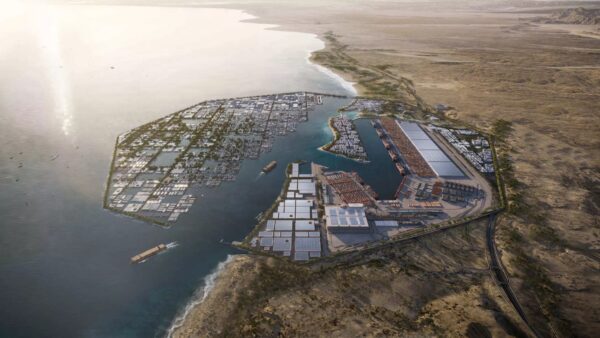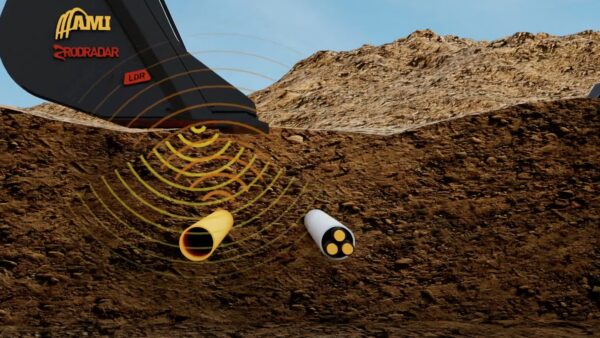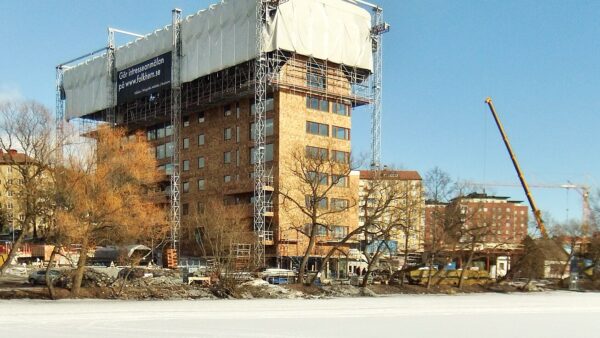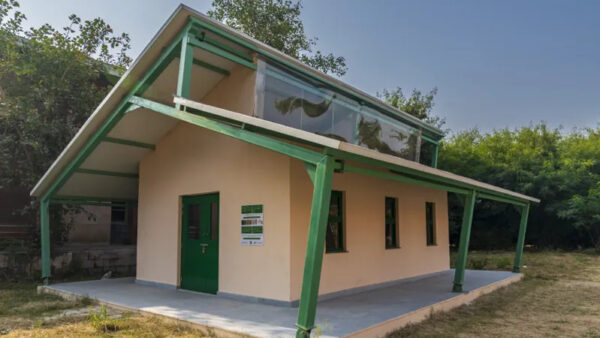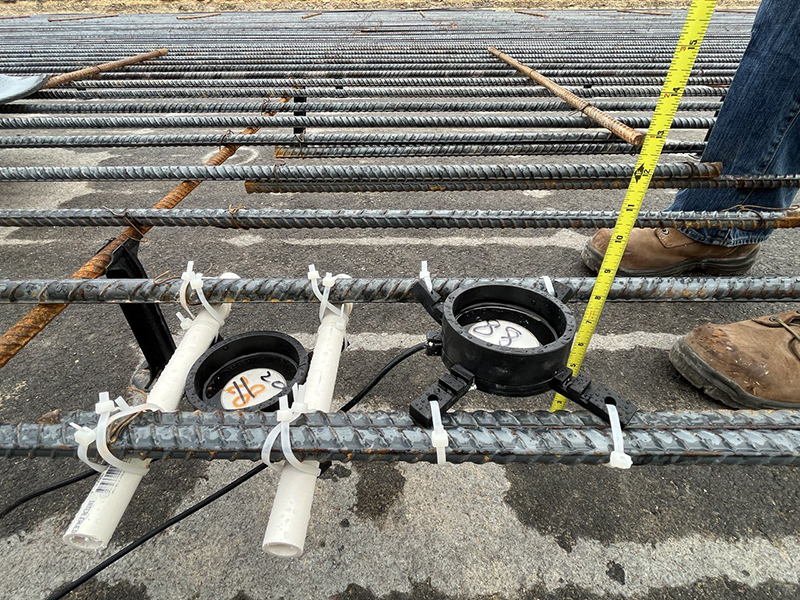
Nine US states with concrete interstate highways will test sensors developed by Purdue University that tell engineers when a section of road is ready for heavy traffic.
Attached to rebar or formwork and buried under the pour, the sensors send data about the concrete’s condition directly to engineers’ phones.
The point of the so-called “talking concrete” is to let engineers know exactly when a stretch of road has cured sufficiently.
Current methods – in use for more than a century – use lab testing of a given concrete mix to calculate how long that mix should cure before opening the road.
But discrepancies between lab and outdoor site conditions can give inaccurate estimates, leading to premature openings and early road damage. Concrete roads are more difficult to repair than asphalt ones.
Civil engineering professor Luna Lu, acting head of Purdue’s Lyles School of Civil Engineering, started developing the sensors in 2017.
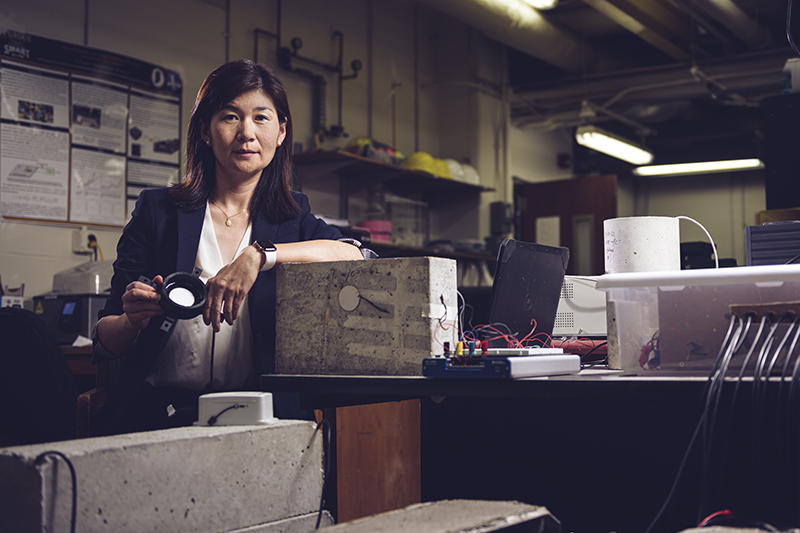
She said they could alleviate roadwork traffic jams that waste four billion hours and three billion gallons of gasoline a year.
Concrete pavement makes up less than 2% of US roads, but some 20% of the US interstate highway system.
Over half of US states with concrete interstate roads have signed up to participate in a Federal Highway Administration study to try the sensors. They are Indiana, Missouri, North Dakota, Kansas, California, Texas, Tennessee, Colorado, and Utah.
Indiana and Texas have already started using the sensors.
Lu’s startup, WaveLogix, is also developing a way of using AI to optimise concrete mixes to reduce cement based on data her sensors collect from highways.
“I feel a strong sense of responsibility to make an impact on our infrastructure through developing new types of technology. In the field of civil engineering, if we don’t make an impact on the world, there won’t be a world to worry about,” Lu said.

